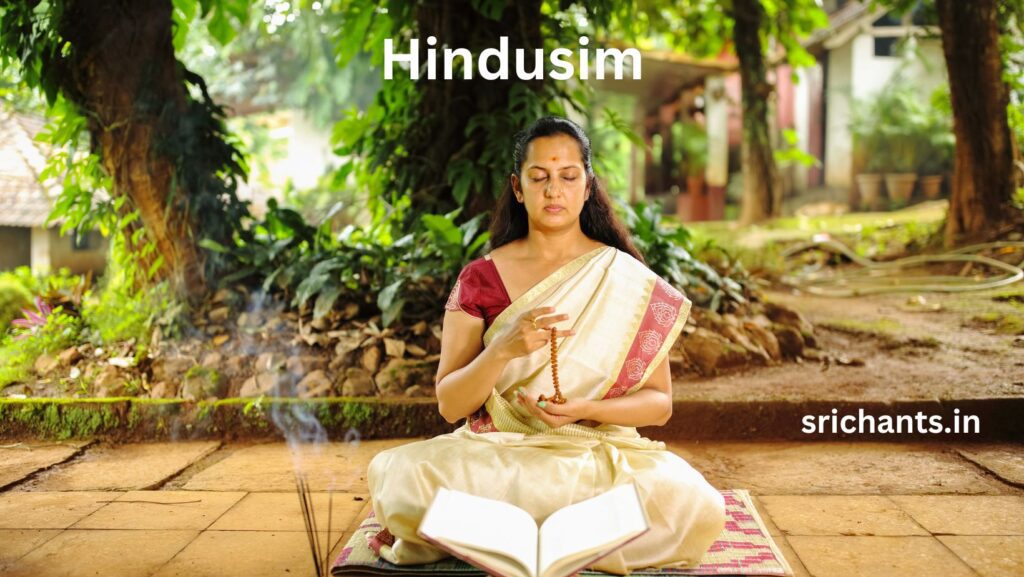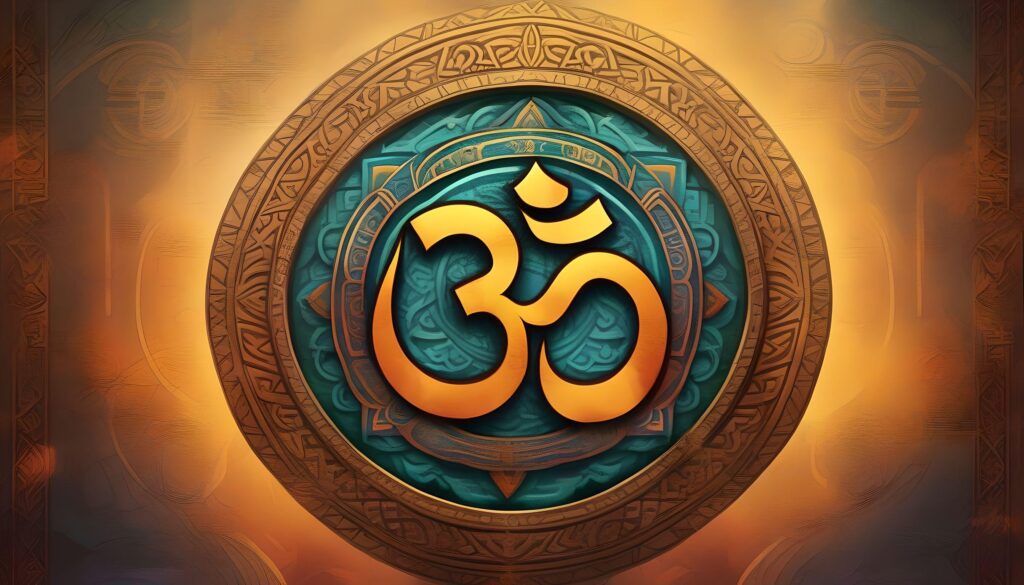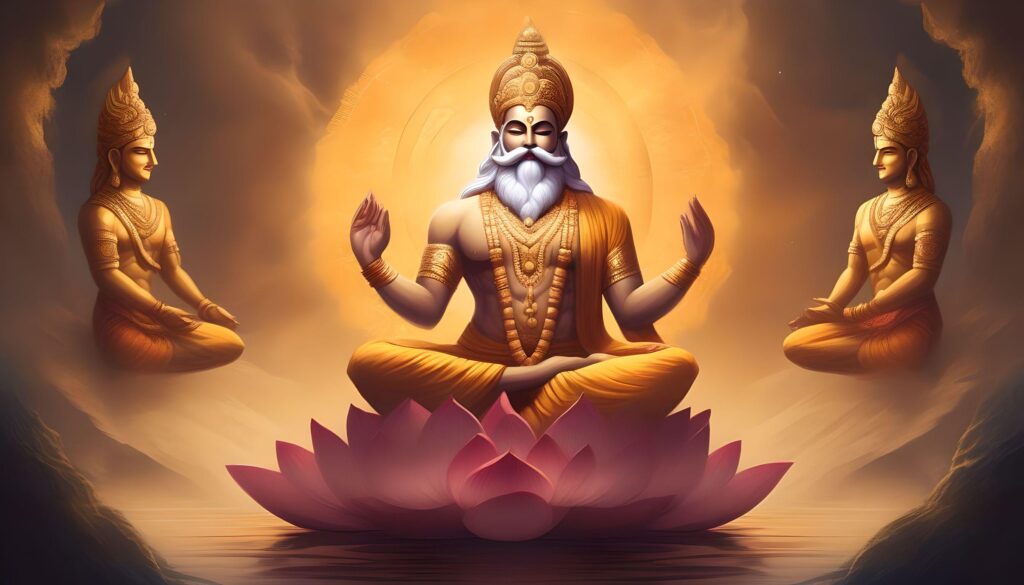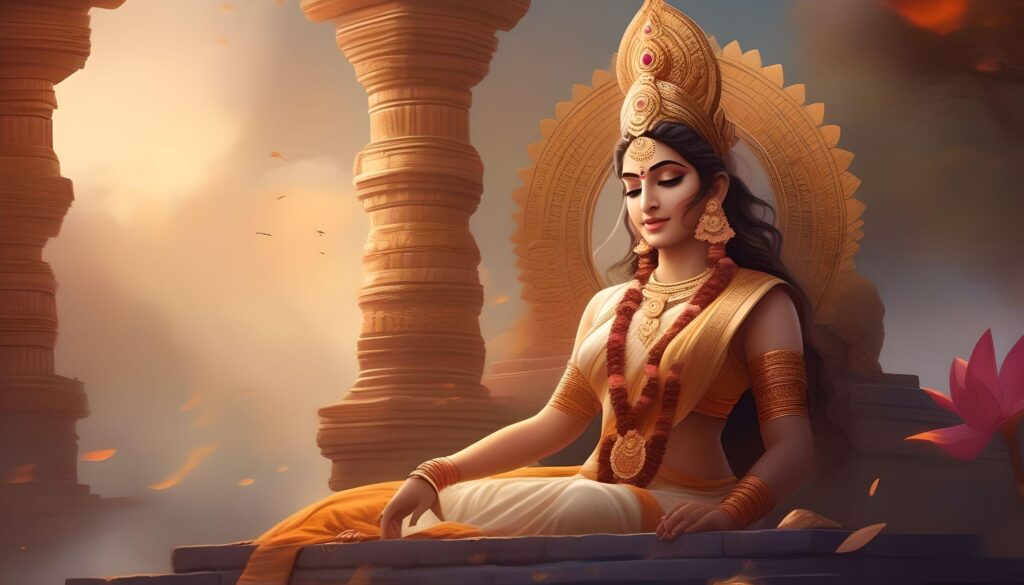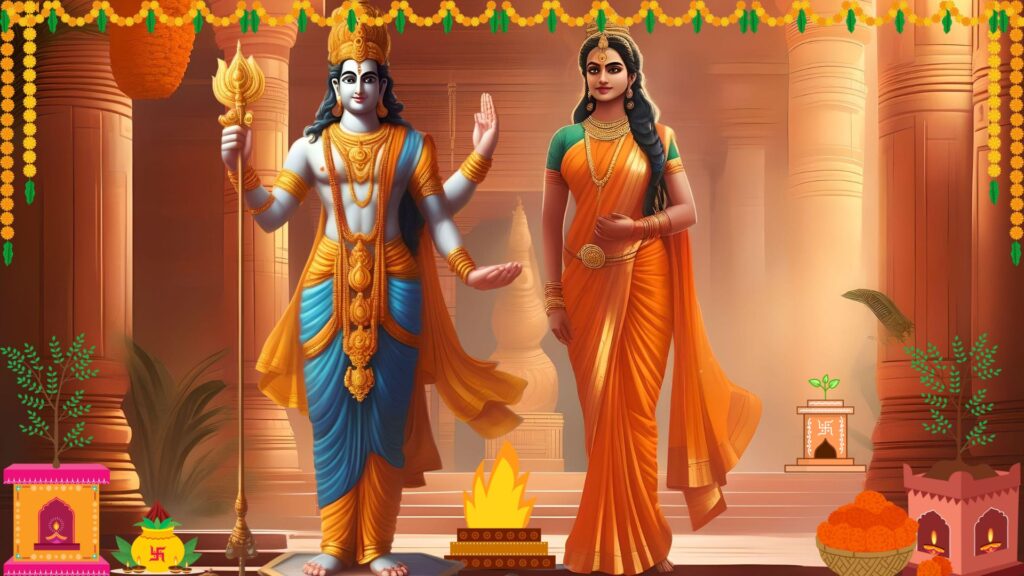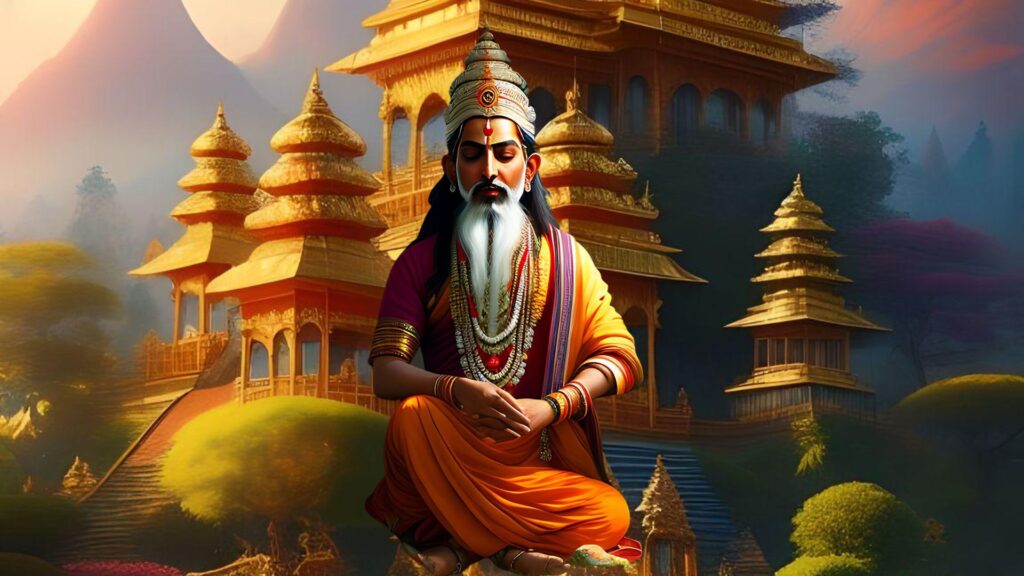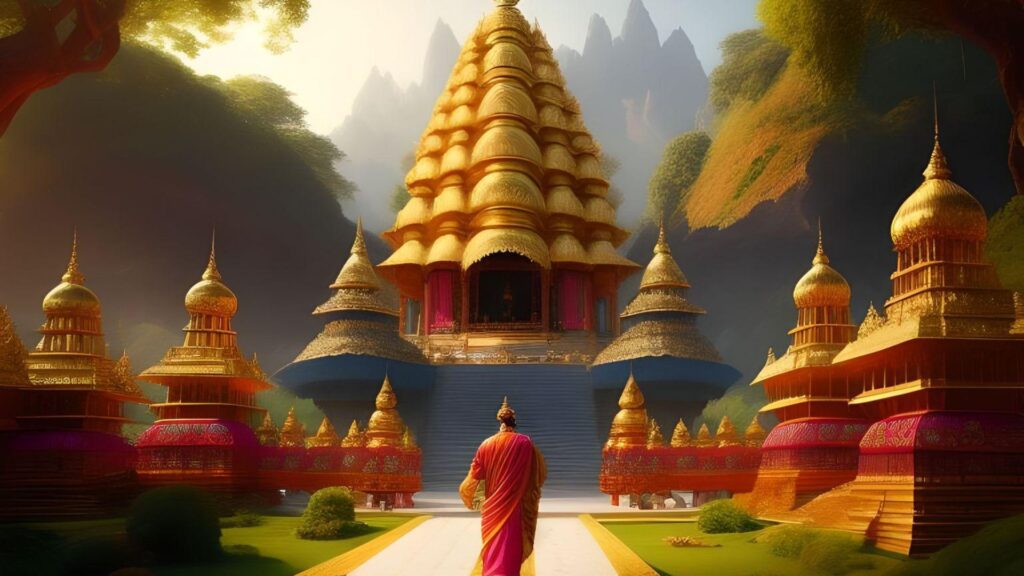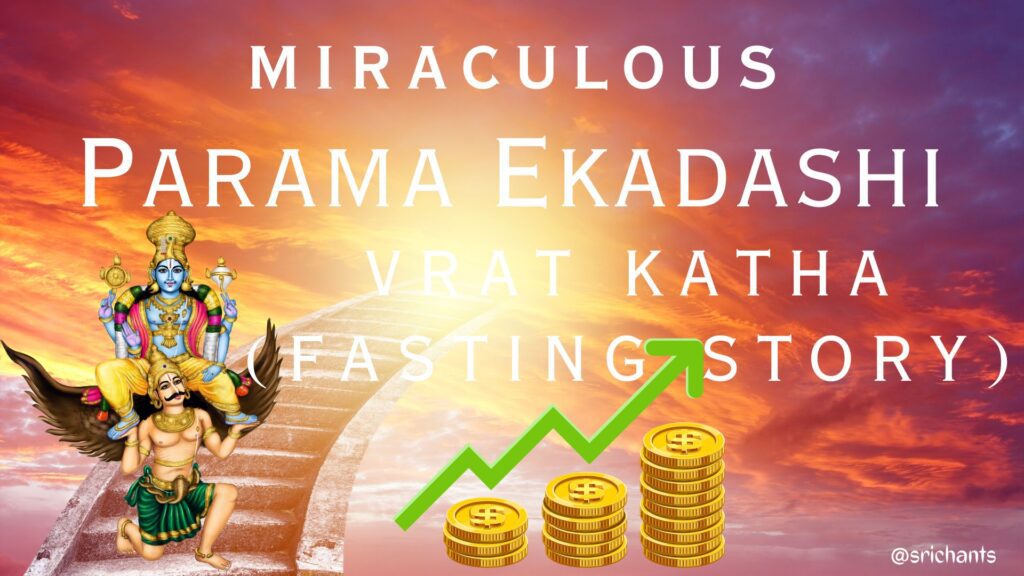Hinduism : A Timeless Tapestry of Belief, Practice, and Wisdom
Introduction
The boundless human capacity for spiritual exploration and expression is exemplified by Hinduism, the ancient and multifaceted religion of the Indian subcontinent. The minds and souls of countless individuals worldwide have been captivated by this venerable tradition, which is frequently referred to as the “mother of all religions,” transcending the boundaries of time and culture.
A Tradition Older Than Time
Some scholars postulate that the roots of Hinduism may even predate the Indus Valley Civilization, which flourished in the third and second millennia BCE, and can be traced back to the dawn of human civilization. British writers in the 19th century coined the term “Hinduism” to describe the diverse multitude of beliefs, practices, and philosophical systems that had organically developed within the Indian subcontinent over millennia. Thus, the term is relatively modern.
The Expansive Nature of Hinduism
Hinduism is distinguished by its extraordinary capacity for adaptability and inclusivity. Hinduism, in contrast to numerous other significant world religions, does not have a single progenitor, a centralized authority, or a unifying scripture. Rather, it is a dynamic, thriving tradition that has consistently reinvented itself, incorporating and integrating new concepts while concurrently safeguarding the fundamental principles that have sustained it throughout the ages.
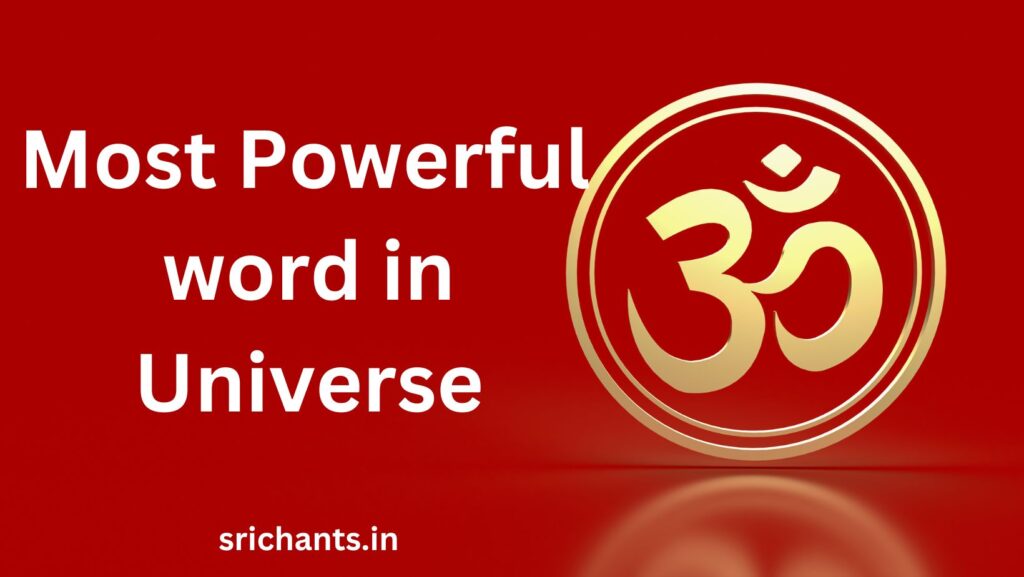
The Five Tensile Strands
Hinduism is characterized by a tapestry of five interconnected elements that provide the tradition with structure and substance: doctrine, practice, society, narrative, and devotion. These five strands, which are frequently referred to as the “tensile strands” of Hinduism, have developed in a dynamic interplay, with each strand contributing to and enhancing the others.
Doctrine
The Vedas, a vast corpus of sacred texts that have been meticulously preserved and expounded upon by generations of Brahmin scholars, are the foundational doctrinal essence of Hinduism. These ancient scriptures, which are reputed to have been given to seers and sages, cover a broad spectrum of topics, including ethical and social principles, theology, and cosmogony.
The Vedic tradition is the source of the fundamental concepts of Hinduism, including the belief in Samsara (the cycle of birth, death, and rebirth), the doctrine of Atman (the individual soul), the principle of Karma (the law of cause and effect), and the notion of Brahman (the ultimate divine reality). The rich tapestry of Hindu philosophical schools has further elaborated and debated these concepts, each offering its own unique perspective on the nature of the divine, the self, and the cosmos.
Practice
The Hindu tradition is distinguished by a vibrant and diverse array of spiritual practices, in addition to its doctrinal foundations. The practical manifestation of Hinduism is a multifaceted tapestry, ranging from the intricate rituals and ceremonies that are performed in stately temple complexes to the intimate domestic rites that are observed in the home.
The veneration of a pantheon of deities, each of which represents a distinct aspect of the ultimate reality, is the means by which the worship of the divine is demonstrated. Yoga, meditation, and mantra recitation are now widely acknowledged as potent instruments for spiritual enlightenment and personal transformation on a global scale. Furthermore, the Hindu calendar is replete with a diverse array of festivals and observances, each of which possesses its own distinctive customs and significance.

Society
Hinduism has also significantly influenced the social structure of the Indian subcontinent, resulting in a multifaceted system of castes, social hierarchies, and cultural norms. Although the caste system has been a source of both reverence and controversy, it has also cultivated a profound sense of social interdependence and community.
Hinduism has also produced a variety of spiritual orders and reform movements that aim to confront the challenges of their respective eras, in addition to the traditional social structures. Hinduism has undergone a continuous evolution to accommodate the requirements of its followers, from the Bhakti traditions, which prioritized devotional love and the divine’s accessibility, to the Tantric schools, which investigated the esoteric aspects of the human experience.
Story
The collective imagination and cultural identity of the Indian people have been significantly influenced by the rich tapestry of Hindu mythology and narrative tradition. Ramayana and Mahabharata epic compositions, as well as the numerous Puranas (ancient mythological texts), have interwoven a tapestry of narratives that investigate the divine, the human condition, and the moral and ethical principles that govern the individual and the community.
Not only have these narratives entertained and inspired generations of Hindus, but they have also served as vehicles for the transmission of fundamental philosophical and spiritual concepts, often featuring larger-than-life deities, heroes, and cultural icons. The power of storytelling in the Hindu tradition is attested to by the enduring prevalence and relevance of these stories.
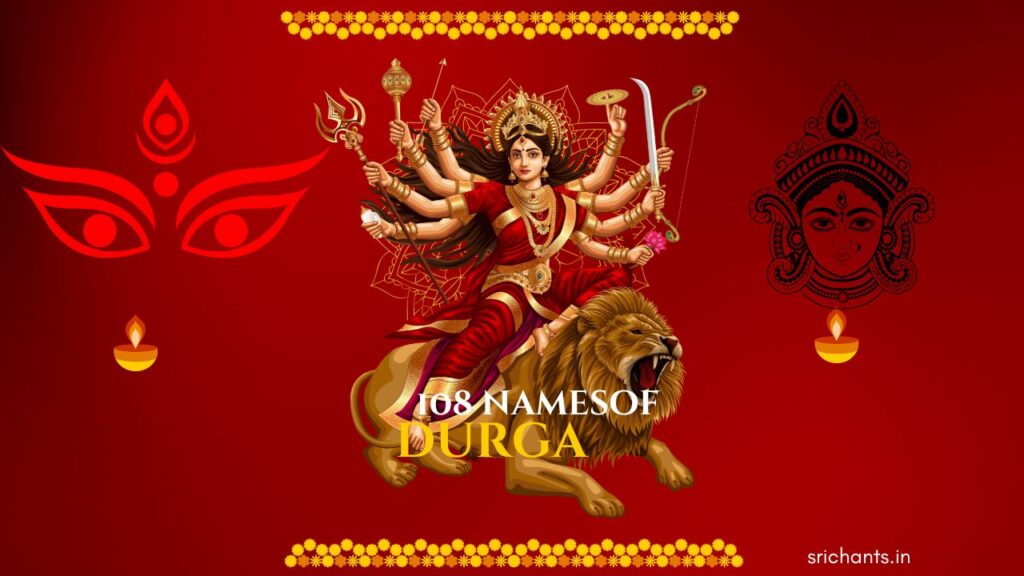
Devotion
Arguably the most visible and emotionally resonant aspect of Hinduism is the tradition of devotion, or Bhakti. This profound expression of love, reverence, and surrender to the divine permeates every facet of Hindu life, from the intimate rituals performed in the home to the grand festivals that draw millions of devotees.
The Bhakti movement, which gained momentum in the medieval period, gave rise to a rich tapestry of devotional poetry, music, and art, celebrating the love and longing for the divine. Figures such as Mirabai, Kabir, and Chaitanya Mahaprabhu became revered saints and exemplars of this devotional path, inspiring millions with their passionate expressions of spiritual devotion.
The Enduring Influence of Hinduism
Hinduism’s profound influence extends far beyond the confines of the Indian subcontinent. The cultural, intellectual, and spiritual landscape of the world has been forever altered by this ancient tradition over the centuries.
Philosophical and Spiritual Resonance
For centuries, Western scholars and intellectuals have been captivated by the philosophical and spiritual insights of Hinduism. The metaphysical concepts and meditative practices of the Hindu tradition had a profound resonance with the philosophical inquiries of figures such as Schopenhauer, Emerson, and Thoreau, who were profoundly influenced by them.

Scientific and Technological Contributions
Hinduism’s extensive scientific and technological heritage has also garnered a growing amount of scholarly attention. The tradition’s contributions to the advancement of human knowledge and understanding have been widely acknowledged, from the complex mathematical and astronomical systems inscribed in the Vedas to the pioneering medical and surgical practices described in ancient Hindu texts.
Cultural Diffusion and Globalization
The tradition’s adaptability and resilience have been demonstrated by the global dissemination of Hinduism. Hindu ideas, practices, and cultural manifestations have been disseminated worldwide over the centuries, influencing the development of diverse religious and philosophical traditions, as well as the arts, literature, and social structures of various civilizations.
In the present day, Hinduism is not only flourishing in its ancestral homeland but also in vibrant diasporic communities worldwide. It harmoniously integrates with local customs and belief systems while preserving its core identity and universal appeal.
Conclusion
As we explore the intricate tapestry of Hinduism, we are met with a tradition that resists simplistic definitions and defies simple categorization. It is a living, breathing entity that has endured the ravages of time, adapting and evolving to satisfy the evolving requirements of its followers. It is a tapestry of cultural expressions, practices, and beliefs.
The enduring legacy of Hinduism is a testament to the power of spiritual exploration, the resilience of cultural traditions, and the universal human desire to seek meaning, purpose, and connection with the divine in an era that is increasingly defined by globalization and the cross-pollination of ideas. We are reminded of the boundless potential of the human spirit to transcend the boundaries of time and space and to weave the diverse strands of our collective experience into a tapestry of enduring wisdom and understanding as we continue to unravel the mysteries and complexities of this ancient tradition.
#hinduism #Hindu #india
